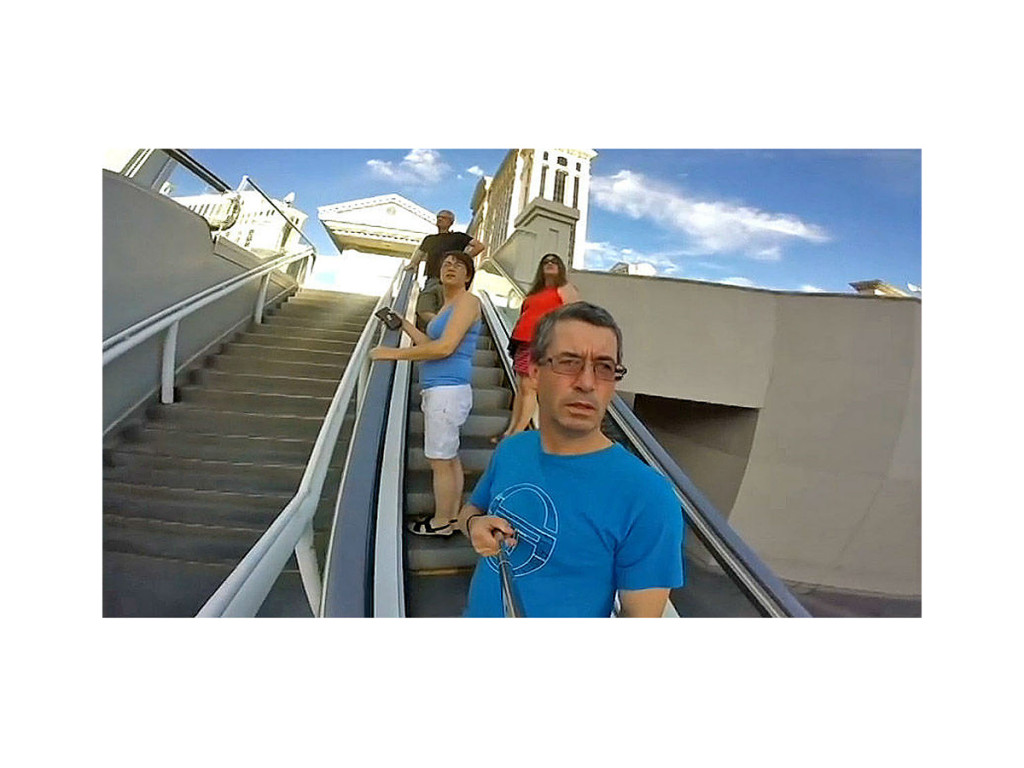
Last month (which is aeons in Internet years), an Irish dad’s video of his trip to Las Vegas went viral on the Internet. Simply titled “An Irishman in Vegas,” the video features him wandering through the streets of Sin City oblivious to the fact that he had the GoPro aimed at himself. Somehow, the video gained momentum through various alternative news outlets like Vice, Buzzfeed, Forbes and even ended up on Fox News.
People were quick to criticize Fox News in the comments, questioning the decision to feature the video as news. Others declared that it was a part of a conspiracy meant to distract from the protests taking place at the University of Missouri. From comments undermining the video’s legitimacy to ones proposing conspiracy theories, the comments section was ablaze with cynicism and paranoia.
Admittedly, the video is pointless. I personally didn’t find it very funny, and was rather embarrassed for the man instead. However, I know not to ruin a good time when I see one, since some people did admit to finding the video rather amusing — and nobody likes a wet blanket.
With the San Bernardino shootings, the Paris attacks, the Beirut bombing, the Syrian refugee crisis and local crimes, it almost seems as if the world is undergoing a self-inflicted apocalypse. So, why is it so difficult for some people to take a break from all this tragedy and simply enjoy a four-minute video of a dad rambling to himself?
Psychological studies have indicated that we are more receptive to negative headlines because of an evolutionary phenomenon called “negativity bias.” Headlines about negative topics trigger a primitive survival instinct that alerts us when something is amiss and our lives might be in danger. This was probably really useful when we used forage for food in loincloths, but now it’s rather obsolete and is only good for stressing us out.
It’s important to keep in mind that news outlets are exploiting this bias by relentlessly bombarding us with reports adorned with sensationalist headlines. The idea is: If it bleeds, it leads. Even though journalists have a responsibility to keep us informed, they also need to make money. Unfortunately, it’s at the cost of our mental well-being.
Constant exposure to bad news makes us anxious, paranoid and more pessimistic. When we are shown images of crime and tragedy, we are led to only think about those things. As a result, we question other’s motives and lose the perspective that there is some good in the world and feel helpless when we see horrible situations that we can’t fix or ameliorate.
I’m not saying that these recent tragedies aren’t real, nor am I advocating for ignorance. Bombings, murders and shootings are definitely very real and weigh heavily on everyone, especially those immediately involved. I’m merely questioning why being informed should take away our ability to enjoy adorable, albeit insignificant things.
Personally, I find it very difficult to be ignorant in college. Being in a place where such topics are constantly debated, it’s difficult not to get riled up and affected. Although I didn’t get a chuckle out of “An Irishman in Vegas,” I found the video strangely consoling. Here was a totally clueless man having a grand time in a foreign country and he was totally fine.
We can’t immediately change what’s happening in the world, but we do have control over the things we expose ourselves to. While I do think that being aware is important, it’s not healthy to be so consumed by things we’re not immediately involved in. Arguing with strangers over the Internet, spewing conspiracy theories and questioning harmless things won’t reverse the damage and suffering that has already been inflicted.
It should be fine to take a step back and indulge in a cute puppy video every once in a while.








